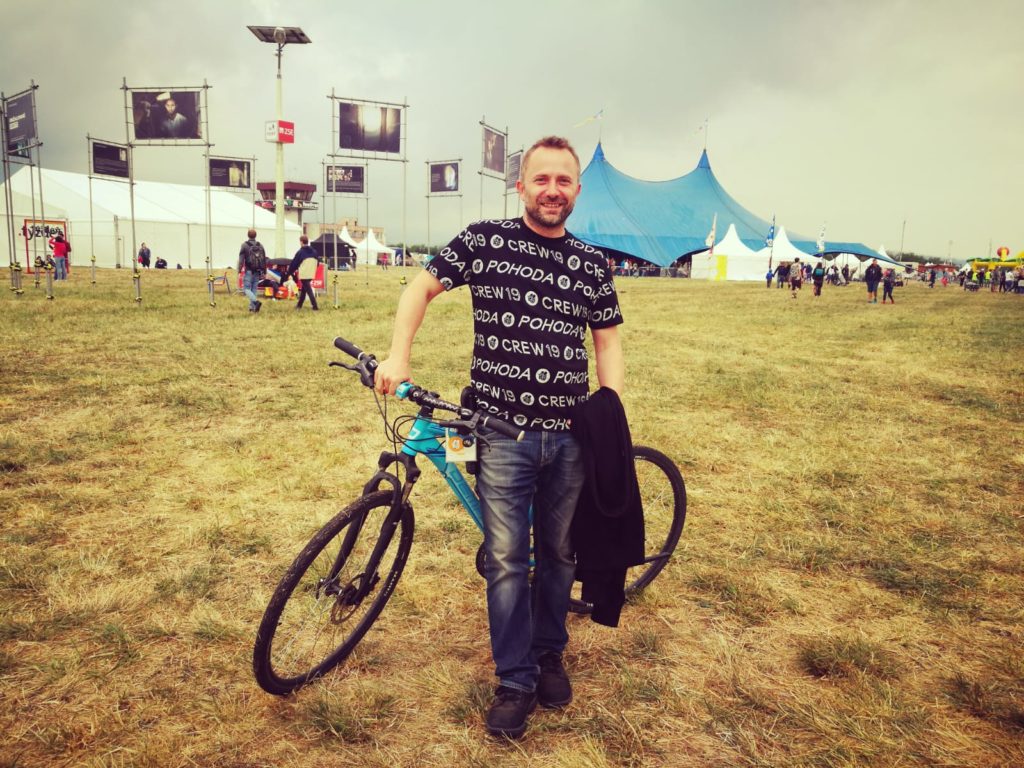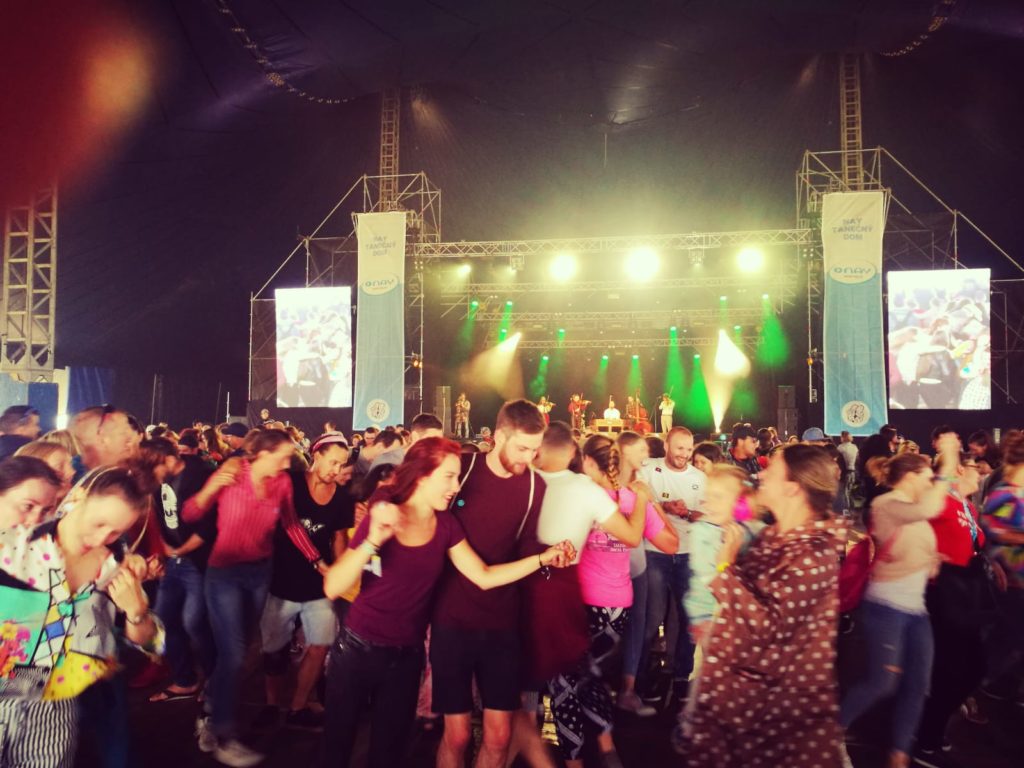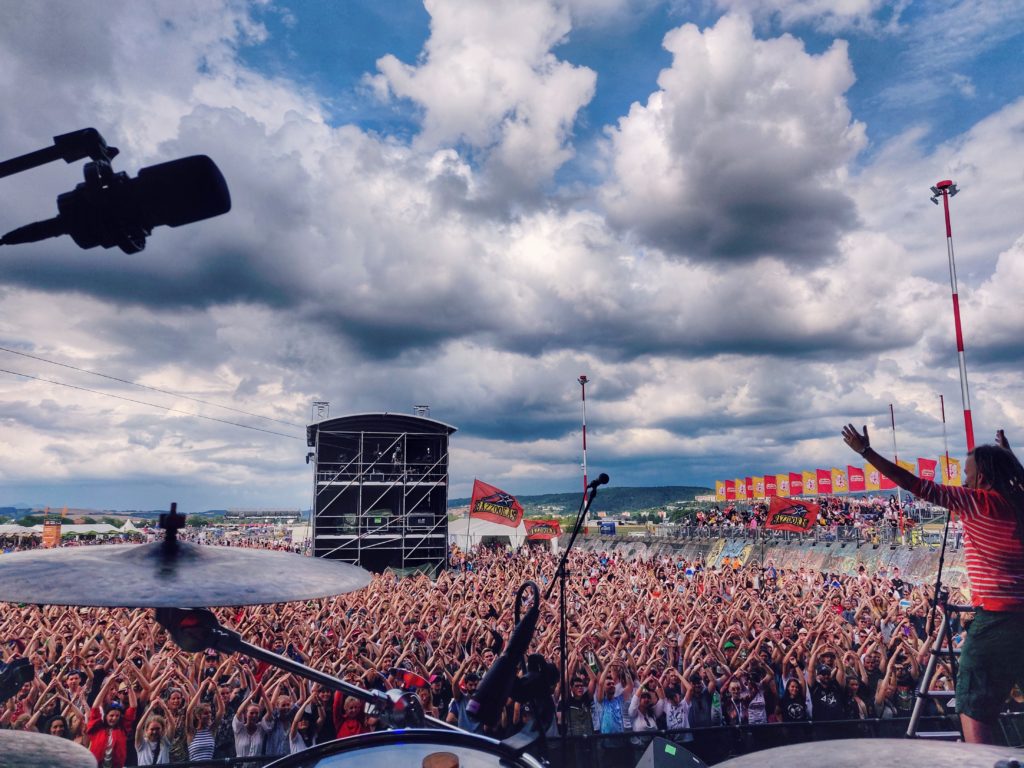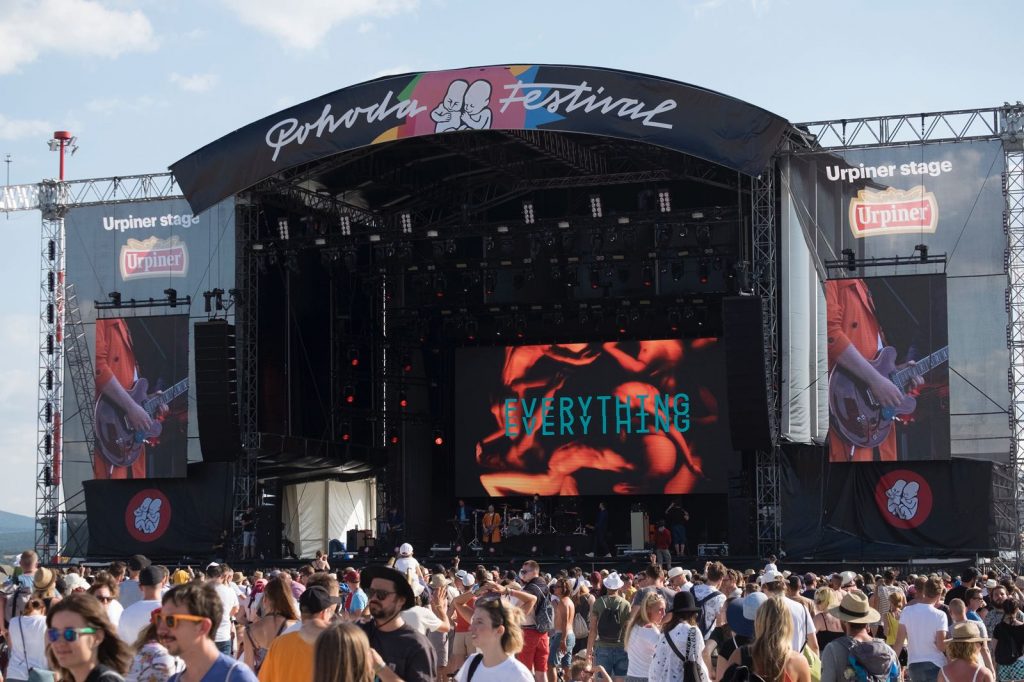This year 30,000 people visited Pohoda Festival in Trencin, Slovakia. Yet, even though the festival has sold out several times in a row and it draws bigger artists every year, festival director Michal Kaščák does not think about raising ticket sales. Festileaks talked with Michal about the unique features of Pohoda and the challenges they face as an independent festival.
It is cloudy and grey on the second day of Pohoda 2019 when in the distance a small silhouet on a blue bike appears. Organiser and founder Michal Kaščák has found some time to talk with us in his busy schedule. It is 23 years after Michal ended his career as a musician and started a small festival with a friend, booking bands they knew from their time on the road. When the festival started to grow, his team also expanded, but for many things he is still the man in charge. The best example of this is the programming. Many festivals have outsourced this to booking agencies, but at Pohoda this is still their own work. The result is a festival with a unique line-up and a very relaxed atmosphere.
“We wanted to be the first festival without security”

During the conversation it becomes very clear that the director of Pohoda has strong principles when it comes to organizing his event: “We wanted to be the first festival in the world without security. When we started Pohoda, Mario (a befriended musician) and I did not want to become promotors, instead we wanted to create a festival where everyone could feel at home and do whatever they like. But we ended with such a big loss that we switched to using security at our festivals haha.”
Despite these losses at the first edition, they pushed through. The festival grew bigger every year. Until ten years ago: “This is the tenth year that we have limited the festival at 30,000 visitors and we will not go bigger,” he says. “We do not want to sell more and more tickets each year. Although we could very well use the money, the amount of people we have now is perfect. It is big, but it still has the feeling of a small and intimate festival.” Pointing towards the nearby airport and the meadows surrounding it, he continues: “I could add all of this to the festival, but then we would get way too big. That would – the way I see it – ruin the atmosphere. We have chosen not to focus on numbers but on the programme. We are no mathematicians, although I did study maths in college.”
“Pohoda is not just about cheap beer”

Not only has Michal thought about the number of visitors, but also about which kinds of people he wants to attract. “We are open for everyone and from all corners of the world. Pohoda is a place where people can come together and get new experiences. We are very happy with the internationals in our audience,” Michal explains. “But,” he continues, “I am very happy that the basis of our audience is made up of Slovakians. When we talk about sensitive subjects with expositions, they are mostly about things that happened or are happening in Slovakia. Music groups who do things related to our culture are also better understood when the majority of our audience is Slovakian.”
“We do not want to be a festival with just cheap beer,” he adds. “There are certain festivals in Eastern Europe that do that, so they get more visitors from abroad. I would prefer that people come to our festival because of the programme we offer.” When asked whether his first remark is about Sziget, he nods. “But do not get me wrong. When I started, Sziget was a huge source of inspiration. But I think now the rates are a bit off. I believe it is something like fifty/fifty when it comes to internationals and Hungarians. I believe it is better to have about 25% internationals. It is important to me that Pohoda is – and stays – a meeting place for musicians and artists from the country.”
“We try to make the festival feel like it is a party at home”
Michal tells us: “It is our ideology to make the festival feel like it is at your own house. That means taking care of your guests: a clean toilet, good food and enough entertainment. If you provide that, your guests will make the party.” To get that party started, the visitors of Pohoda are entertained by a wide array of musical guests. Michal explains that it is sometimes hard to get good international acts, because they do their own bookings and booking agencies give festivals they are working with the first pick. But the artists and promoters who do come build a special bond with the festival and this gives Pohoda an advantage. “Lykke Li’s promoter was visiting last year with a different group he was working for, and he was very impressed. When we tried to book Lykke Li for this year, we did not need much bargaining.”
“They were there all night, comforting her”
One of Michal’s most special moments was in 2005, after the show of The Prodigy. “When I gave them a tour of the festival after their show, they suddenly became restless. I could feel something was wrong. Their tour manager John became nervous and sent them back to the bus. I thought I had done something wrong. Later we heard that they visited a fan’s girlfriend. A couple of months earlier they played a show in Brnó (a town in the Czech Republic, close to Trencin) and during that show a fan fell from the stands. He died in the hospital on the evening of the Pohoda show. The guide told us that they were with the girlfriend all night to comfort her. We were all crying when we heard the story. It is because of moments like these that I keep on doing this.”
Did you visit Pohoda 2019?

Were you at Pohoda 2019 too? We would like to know how you experienced the festival. Below, you can rate the festival in seven different categories. Later this month, we conclude which festivals were the best during the Festileaks Festival Awards. Participation is voluntary and anonymous.
Pohoda 2019

Pohoda Festival is an annual music festival that takes place in Trenčín, Slovakia. The festival was organized for the first time in 1997 and since then it has grown into the biggest Slovakian music event organized annually. The festival features a variety of artists from different music genres including rock, pop, world music, house, techno, hip-hop and more.
For more information, see the official website.

Pohoda Festival 2019










